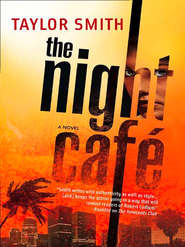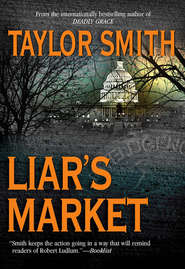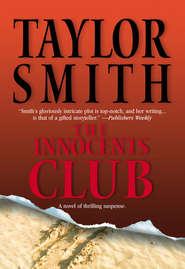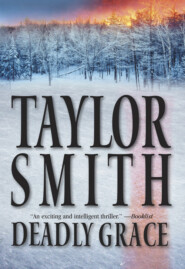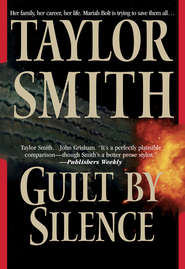По всем вопросам обращайтесь на: info@litportal.ru
(©) 2003-2024.
✖
Slim To None
Автор
Год написания книги
2018
Настройки чтения
Размер шрифта
Высота строк
Поля
Beantown was in the grip of a stifling summer heat wave that crackled with the electric charge of an imminent thunderstorm. Sweaty, lethargic pedestrians dragged themselves through the streets, ignoring blue-black clouds that had shown up like violent bruises on the heavy-laden sky. It was too hot to hurry for shelter, too humid to care about the approaching afternoon tempest.
Patrick Burton Fitzgerald stood high overhead at the windows of his fifty-third-floor offices in the John Hancock Tower, gazing down on Trinity Church, the Charles River and the gracious shops and tree-lined avenues of Boston’s Back Bay neighborhood. The Hancock office complex was entirely encased in glass, so that the windows on which he rested his clenched fists ran floor-to-ceiling, wall-to-wall.
Fitzgerald had never considered himself a violent man. At the moment, however, he trembled with the kind of rage that could spark murder. If he got his hands on the bastard who had ordered his daughter’s kidnapping, he would cut his throat without hesitation or regret. How dare these people use Amy as a pawn in their power games?
Fitzgerald wasn’t naïve. He knew that Americans were less than universally loved in some parts of the world, and he could sometimes even understand why that might be. He wasn’t some ugly American who thought that U.S. citizenship gave an automatic right to megalomania. He recognized that other people might interpret facts differently than his compatriots, and that other countries’ national interests might not always dovetail with those of the United States. Some conflicts were inevitable.
Unlike many of his business peers, he had grave doubts about the current campaign in Iraq. Although he hadn’t joined street marches to protest the war, he had made phone calls to members of Congress and other friends in the administration to express his concern that the legitimate hunt for Osama bin Laden and others responsible for acts of terror against America was being hijacked by an obsessive preoccupation with Saddam Hussein who, for all his brutality, hardly posed the threat to this country that other bad actors out there did.
Fitzgerald was a moderate Republican, economically conservative but not without a sense of noblesse oblige. He considered himself cosmopolitan, politically astute and culturally sensitive. In addition to numerous domestic charities, he donated significant sums to international refugee assistance, Third World education and health care for the planet’s poorest wretches. Fitzgerald and his wife Katherine had also raised their five children to understand their responsibility to give back to a world that had been uncommonly generous to the Fitzgeralds. In light of the disaster that had befallen them now, however, he found himself rethinking the wisdom of that approach. Had they somehow gone overboard with Amy, their youngest?
A brutal rage seized him once more. If he weren’t so wretched with fear, he might be appalled at having been reduced to the same level of animal passion as the terrorists who’d taken his daughter. To hell with civility, however. He wanted them all dead.
Most of all, he wanted Amy home safe.
She was a medical doctor. After completing her studies at Johns Hopkins, Amy had done her residency at a tough inner-city Baltimore E.R. After that, Fitzgerald and his wife had been hoping she’d move on to something a little less risky. Instead, when the International Red Cross put out a call for medical personnel to help rebuild the battered health care system in post-Saddam Iraq, Amy was quick to volunteer her services, signing up before her parents could express their misgivings.
Fitzgerald could almost hear her laughing voice. “Come on, Dad! You know what you’ve always said—to whom much is given, much is expected. And I’ve been given a lot, starting with great parents.” Her mischievous eyes sparkled, making it impossible for him to remain upset with her for long. “I’ll be fine. You worry too much.”
Now, she was a prisoner—or worse, Fitzgerald thought, a knot tightening in his gut. There’d been no word from her captors since she’d been taken from a Red Crescent clinic north of Baghdad five days earlier. No ransom demand, none of the usual ranting, cliché-ridden communiqués ordering the withdrawal of American forces. Nor had there been any credible response to the million-dollar reward for her safe return that Fitzgerald had posted two days ago. Of course, the crazies and fraud artists had crawled out of the slime pool in quick enough time, forcing him and his advisors to sift through reams of deceitful, bizarre and mean-spirited messages, looking for the one that might provide a genuine lead or ray of hope. From Amy’s captors, however, there’d been nothing but total, bloody silence.
What kind of political cause justified attacking a medical clinic and kidnapping a young doctor whose only reason for being in their country in the first place was to help rebuild it after the long, dark nightmare of Saddam’s reign? Amy didn’t have to be there. She’d gone in to help the sick, the wounded and the poor. How did that make her a target for terrorists?
Fitzgerald gazed down on the cruciform shape of Trinity Church. If the glass that held him back were suddenly to vanish, he would plummet down and be impaled like an insect on the spire that topped the cathedral’s central tower. It couldn’t possibly be worse than the agony he was going through now—sheer, gut-wrenching terror. Never in his entire sixty years had he felt so helpless.
He exhaled a shuddering sigh and turned back to his massive, burled walnut desk, willing the phone to ring. It was nearly an hour since he’d put in the latest call to a highly placed source in the administration in Washington. Why hadn’t it been returned? They were certainly quick enough off the mark when campaign fund-raising time rolled around.
The law offices of Fitzgerald-Revere occupied the entire fifty-third floor of the John Hancock Tower. Softly lit and trimmed out in warm woods and buffed marble, the suite smelled of leather and lemon oil. The deep-carpeted corridors and rich furnishings fairly hummed with the subtle but unmistakable message that behind these heavy doors and silk-papered walls, powerful people carried out important business, defining law and business practices that would guide the nation for decades to come.
To facilitate its extensive commercial and government work, Fitzgerald-Revere had branch offices in New York and Washington, but the firm’s headquarters had always been in Boston, since it was here that the founders’ family roots had first been set down. Clients could be forgiven for assuming that those roots went back to the American Revolution, if not the Mayflower itself, given the name “Revere” on the firm’s letterhead. Nor did the partners go out of their way to disabuse anyone of the notion that the “Fitzgeralds” in Fitzgerald-Revere were the same ones whose family tree intertwined with that of the Kennedys.
In fact, however, the founding Revere had originally been a Reinhardt who had legally changed his too-German-sounding name about the time that Kaiser Wilhelm’s troops began mowing down young American manhood in the trenches of World War I. And if old Ernest Fitzgerald, the other co-founder of the now-venerable firm, had no DNA in common with the man who was later to become President John Fitzgerald Kennedy, neither did he have to answer for the kind of Prohibition-era rum-running shenanigans that underpinned the wealth of that other prominent Boston family. Instead, Ernest Fitzgerald had been an Irish potato famine descendant who’d made his fortune by dint of hard work, a brilliant, precedent-setting legal mind and astute deal-making.
There was no longer a Revere (much less a Reinhardt) in the firm of Fitzgerald-Revere, but Ernest’s son, Patrick, was the current senior partner of the firm which had opted to keep its original name, with that convenient if misleading cachet.
Sick of waiting, incapable of turning his attention to anything else, Fitzgerald picked up the phone and punched in his secretary’s extension.
She answered immediately. “Yes, sir?”
“Still nothing from Myers?”
Evan Myers, White House deputy chief of staff, had been a junior associate at Fitzgerald-Revere when Patrick Fitzgerald had introduced him to the former governor of Texas, then given him leave of absence with full pay while he ran the northeastern office of the governor’s first presidential campaign. Since then, and in short order, Myers had risen to stratospheric heights of power. Up to now, his former boss had never called in the marker. Fitzgerald rarely did, preferring to exercise influence subtly through ongoing access and dialogue rather than the tit-for-tat trading of favors. Now, however, the time for subtlety was over. It was payback time.
“I tried calling Mr. Myers again about ten minutes ago,” his secretary said, “but apparently he’s still in a meeting.”
“Damn.”
“His office did promise that he’d get right back to you as soon as it wrapped. Also…” she added, her voice hesitant.
“What?”
“Mrs. Fitzgerald called a while ago.”
“Why didn’t you put her through?”
“She didn’t want to bother you. She just wondered if you’d heard anything.”
Fitzgerald sank down in his leather chair and leaned forward on his desk, resting his forehead in his free hand. “I told her I’d be calling Evan this morning.”
“Yes, sir, that’s what she said. She just wanted to know if you’d spoken to him and if there was any news.”
Poor Katherine, Fitzgerald thought. This was even harder on her than it was on him. He at least had the office, where he could go and pretend to be busy.
He didn’t bother telling her about the frustrating calls they’d been getting from crackpots and fortune hunters looking to claim that million-dollar reward. Since there was nothing to report from his calls to Washington either, Fitzgerald could do nothing but tippy-toe around his wife, terrified of saying or doing something that would set off the howls of rage and grief they both felt—terrified they might lash out at each other simply because there was no one else to pummel or scream at in their impotent fury.
Katherine would have been sitting at home all morning, unable, like him, to do anything or step away from the phone for fear of missing that one critical call that would bring news about Amy. Reluctant, as well, to ask what else Patrick had done today for fear of sounding critical, as if he didn’t care enough to pull out all the stops to bring their daughter home. Fitzgerald himself was afraid to say anything that might get his wife’s hopes up, or of saying too little and plunging her even deeper into despair. In the end, he said little or nothing, skulking around with what must seem like stoic reserve at best and, at worst, like cruel indifference.
Behind him, a searing flash of lightning suddenly ripped open the sky and a sharp crack of thunder rattled the windows. Bullet-sized raindrops splattered against the glass.
This wasn’t how he’d seen himself spending his golden years, Fitzgerald thought. Now, if anything happened to Amy, there would be no golden years. Only grief and rage to his last pained breath.
CHAPTER
3
Baghdad, Iraq
Hannah was in a hurry to make her call and get down to the weapons locker before the team leader started making any cracks about the hazards of working with women, but she opened the hotel’s rooftop door cautiously, one hand resting on the gun holstered at her waist. It was her personal weapon, a Beretta nine millimeter semi-automatic, just like the one she’d been trained to use when she became a cop. No matter what equipment her employer made available, she never went out on a job without her own gun, the one she kept cleaned and oiled, the one she knew would never fail in a pinch.
That kind of security was especially critical here. Only a fool walked around Baghdad unarmed. Insurgents and snipers had a habit of popping up at the most inconvenient times. No point in getting shot stupidly.
The graveled rooftop was in darkness, lit only by the ambient light of the surrounding city. She stepped cautiously over the threshold, keeping the door propped open behind her in case she needed to beat a quick retreat, pausing to let her eyes adjust to the dark.
A low murmur sounded from different directions around her, the words indistinguishable but overlapping, the voices clearly engaged in separate conversations. She squinted until she made out four figures scattered around the rooftop, all of them up there for the same reason she was—to get a clear shot at one of the orbiting communications satellites that would bounce their telephone calls to far-flung home bases.
Suddenly, the night air shook with the boom of a mortar round landing somewhere nearby. Conversations paused, then went on as if nothing has happened. Hannah smiled grimly. They were a gutsy bunch, these people who chose to work in the world’s hot spots.
The figure closest to her she recognized, their path shaving crossed in previous strife-tornlocales. The woman worked for National Public Radio, and by the sound of it, she was calling in a story. Spotting Hannah, the reporter gave her a wave.
Hannah nodded back and closed the door to the stairwell, heading for her own isolated patch to place her call. She found an empty corner and set her satellite phone case down on the low wall that ran the perimeter of the rooftop. Then, she paused again as the scents of the city rose to meet her.
There was a particular smell to the Middle East, one as familiar and comforting as her grandmother’s cooking. Even now, years since those summer visits, the smell of lemons and oranges, garlic and ginger, or olive groves and the sea instantly sent her back in her mind to a safe, warm place where loving arms had always opened to welcome her.
Here in landlocked Baghdad, however, there were no salty sea breezes to temper the desert heat or damp down the powder-fine, pervasive yellow sand that insinuated itself into ears and noses and every other bodily crevice. And if the smell of spices and cooking fires drifted on the night air as they did in so many other cities of Hannah’s memory, here the scent was tinged with the acrid sting of weapons fire and explosives recently detonated.
Hannah ducked low behind the parapet as she flicked on the sat phone, directing the antenna southwest toward the Indian Ocean regional satellite. Leaning back against the wall, she scanned nearby rooftops for possible snipers as she dialed the Los Angeles number of her ex-husband.
Normally, in the Middle East’s hot summers, parents and children gravitated to rooftops and balconies in the evening, dragging out mattresses to make their nighttime beds, eager to catch the slightest breeze. These days, however, sleeping outdoors in Baghdad could prove suicidal. Four months after the capital had fallen to coalition forces and major hostilities had been declared over, the streets were still deserted and dangerous at night. No one ventured out after curfew except military patrols and the insurgents trying to kill them. Even peeking out a taped-up window could invite a bullet or rocket-propelled grenade.






